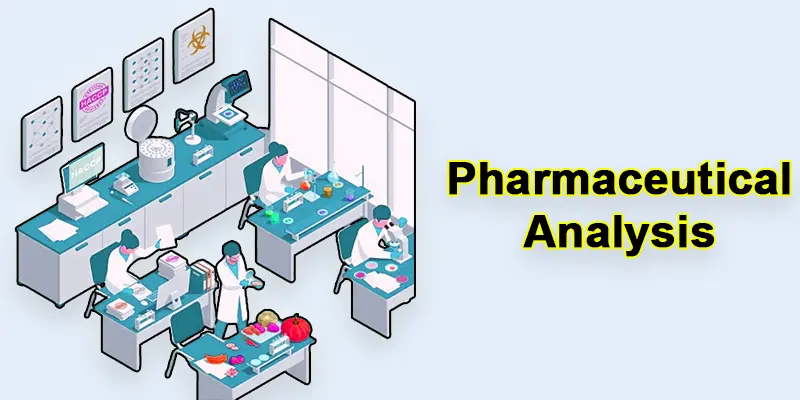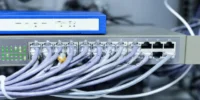Applications of Differential Scanning Calorimetry in Daily Life
Published: 7 Jun 2024
Applications of Differential Scanning Calorimetry
(DSC) stands for Differential Scanning Calorimetry, a technique for studying how materials absorb or release heat when heated or cooled. DSC is a powerful tool for studying the thermal behavior of different industries. This method helps us understand how materials change physically and chemically. DSC is commonly used in many industries and research areas to examine the thermal properties of plastics, medicines, and food.
Differential Scanning Calorimetry (DSC) is a thermal analysis technique used to measure the heat flow associated with material transitions. It has many applications, including various fields like:
- Polymer Characterization
- Pharmaceutical Analysis
- Control of Food Quality
- Material Science Research
- Environmental Analysis
Polymer Characterization
The various scanning and analytical techniques in polymer characterization show polymer materials’ physical, chemical, mechanical, and thermal properties. These methods are important for understanding how polymers behave and function in many contexts.
Pharmaceutical Analysis
Pharmaceutical analysis uses scanning and analytical techniques to provide drug and pharmaceutical products’ safety, efficacy, and quality of drug and pharmaceutical products. These methods are applied at every stage of the medication development process, from introductory research and development to production and quality security.

Control of Food Quality
Food quality control involves using different analytical techniques and technologies to ensure food products’ safety, quality, and authenticity. Scanning technologies are essential in detecting contaminants, assessing composition, and verifying labeling claims.
Material Science Research
Material science research involves various scanning and analytical techniques to investigate materials’ properties, structure, and behavior. These techniques are necessary for understanding material performance, developing new materials, and enhancing existing ones.
Environmental Analysis
Environmental analysis involves scanning to monitor, assess, and manage environmental quality and analytical techniques. These techniques are important for detecting pollutants, understanding environmental processes, and complying with environmental regulations.

| Differential Scanning Calorimetry’s (DSC) Advantages |
|---|
|
DSC is an effective tool for industry and research. It gives quick and accurate information about how materials behave with heat. Accurate and Reliable ResultsDSC gives precise measurements of melting, freezing, and other thermal changes. This helps in making high-quality and safe products. Fast TestingIt only takes a few minutes to test a sample. This saves time in labs and factories. Needs Small Sample SizeDSC requires only a tiny amount of material. This is useful when testing expensive or rare substances. Non-Destructive in Some CasesSome materials can be reused after DSC testing. That means less waste. Easy to Use with PracticeOnce set up, DSC is easy for trained users. With simple training, even students can learn to use it. Wide Range of UsesIt works for plastics, medicines, food, metals, and more. One device can serve many industries. Improves Product Quality and SafetyDSC helps check if products are stable in heat and cold. This prevents problems like melting, breaking, or spoilage. |
Common Materials Tested Using DSC
Differential Scanning Calorimetry (DSC) is used to test many different materials. These tests help find out how the materials react to heat, melt, freeze, or change.
Polymers (Plastics and Rubbers)
- Used to check melting point, glass transition temperature (Tg), and stability.
- Example: Plastic used in water bottles or car dashboards.
Pharmaceuticals (Medicines and Drugs)
- DSC helps test drug purity and safe melting temperature.
- Example: Ensures tablets melt at the right time inside the body.
Food Products (Fats and Oils)
- Tests fat content and stability in foods.
- Example: Checks how chocolate melts at different temperatures.
Metals and Alloys
- DSC can test phase changes in metals.
- Example: Aircraft materials or metal used in tools.
Cosmetics (Creams, Lotions, Lip Balms)
- Helps ensure creams stay stable in heat or cold.
- Example: Lip balm that doesn’t melt in your pocket!
Organic Compounds and Chemicals
- Used in research to study chemical stability and reactions.
- Example: Testing new lab compounds or chemicals for storage safety.
Conclusion About Differential Scanning Calorimetry
Differential scanning calorimetry applications are huge, making it a universal analytical technique in different industries and research fields. From polymer characterization to pharmaceutical analysis, food quality control, material science research, and environmental analysis, DSC delivers helpful information on the thermal properties of materials. Using DSC, researchers and industry professionals can optimize processes, develop new materials, provide product quality, and investigate the thermal behavior of a vast range of substances.
FAQS – Application of (DSC)
Since both samples and reference materials are exposed to the same temperature condition, DSC is used to compare the flow of heat into or out of the two. The difference in heat flow between the sample and reference is followed to examine changes in the sample’s physical and chemical composition.
Equipment used in differential scanning calorimetry includes a DSC instrument, sample and reference pans, a temperature-controlled furnace, a temperature detector, and data analysis software.
DSC is used to investigate polymer thermal properties, including phase transitions, curing reactions, glass transition temperature, and crystallinity, to comprehend their structure and behavior.
The principle of calorimetry is to quantify heat flow using a calorimeter and analyzing the thermal behavior of materials under controlled testing conditions.
DSC is used to test how materials react to heat. It helps in industries like pharmaceuticals, food, plastics, and research labs.
Calorimetry is used to measure heat changes in chemical reactions or material changes. It’s helpful in food testing, drug development, and studying new materials.
In pharma, DSC checks if drugs are pure and stable at different temperatures. It ensures medicines work safely and properly inside the body.
DSC requires a tiny sample and is quick and accurate. It helps in quality control and improves product safety.
Calorimetry helps check drug reactions, stability, and shelf life. It also helps in studying how drug ingredients mix or melt.
Calorimetry is used to test how drugs behave when heated or cooled. It also helps in designing safe and effective drug formulas.
A colorimeter measures color intensity to test drug quality. It ensures medicines have the right amount of active ingredients.
Colorimeters are used in drug testing, water analysis, food quality control, clinical labs, and chemical analysis. They check color changes that reveal chemical information.

- Be Respectful
- Stay Relevant
- Stay Positive
- True Feedback
- Encourage Discussion
- Avoid Spamming
- No Fake News
- Don't Copy-Paste
- No Personal Attacks

- Be Respectful
- Stay Relevant
- Stay Positive
- True Feedback
- Encourage Discussion
- Avoid Spamming
- No Fake News
- Don't Copy-Paste
- No Personal Attacks





